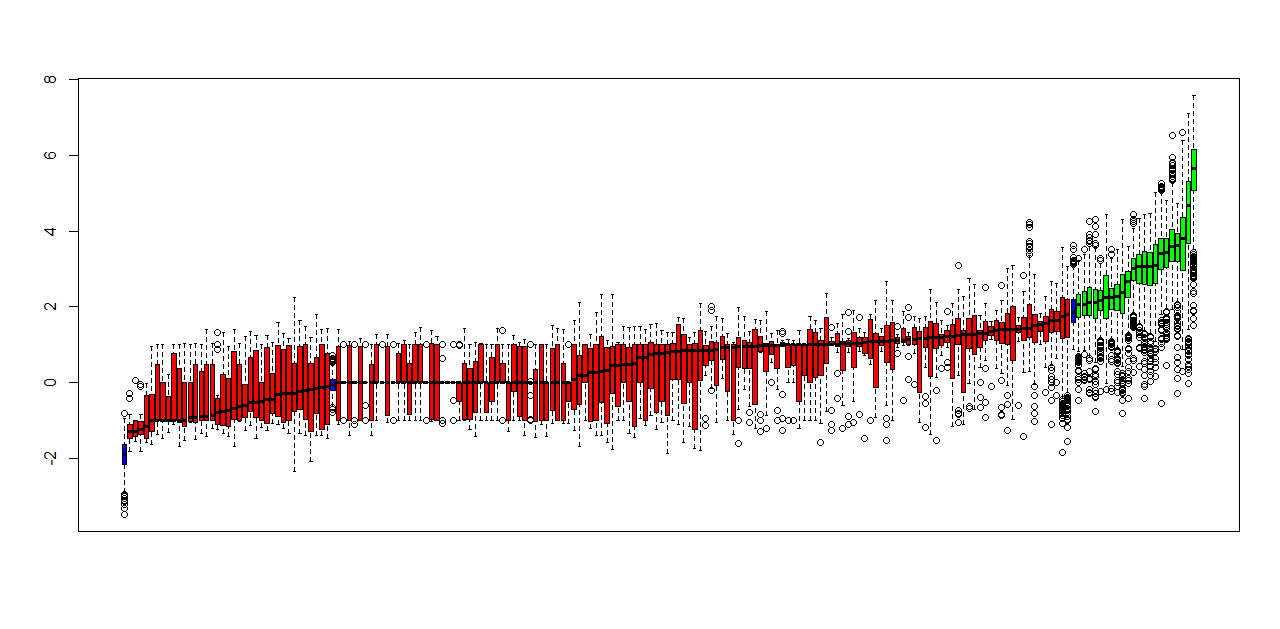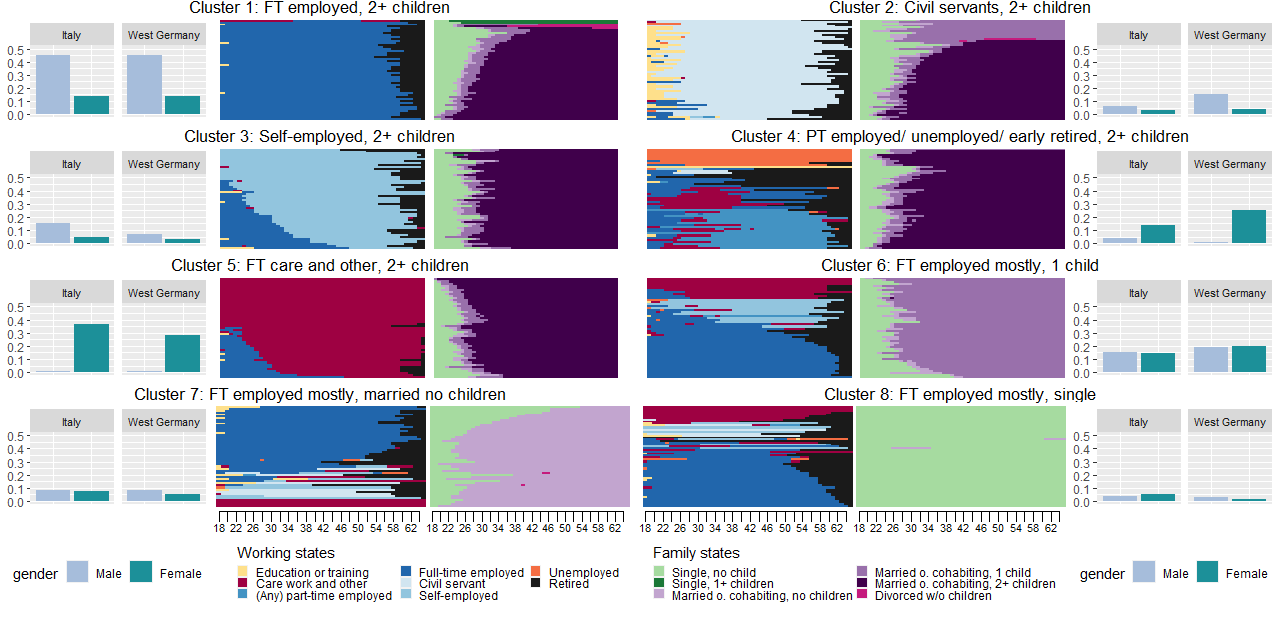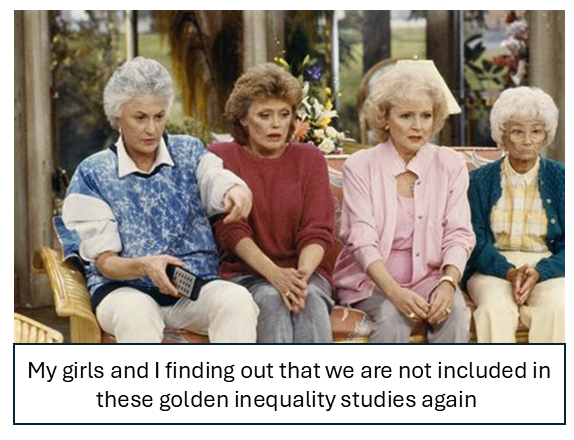Page Not Found
Page not found. Your pixels are in another canvas.
A list of all the posts and pages found on the site. For you robots out there is an XML version available for digesting as well.
Page not found. Your pixels are in another canvas.
About me
This is a page not in th emain menu
Published:
With Nicole Kapelle:
Exploring relevant life course aspects for (gendered) wealth inequalities in old-age

Through which mechanisms are Gender Pension Gaps related to work-family life course patterns or specific aspects of work and family lives?

With Zachary Van Winkle & Martin Gädecke:
Revealing the consequences of children’s family complexity over their childhood

Reviewing elderly sample definition from a gender-sensitive perspective and revealing potential implications for old-age outcomes across contexts. 
Published in DIW Economic Bulletin, 2017
With Peter Haan & Anna Hammerschmid: Revealing similar cross-cpuntry patterns in gender gaps in pension income & mental health in Denmark, France & Germany
Recommended citation: Haan, P., Hammerschmid, A. & Rowold, C. (2017). Gender gaps in pensions and health: Germany, France, and Denmark. DIW Economic Bulletin, 7(43), 436-442. https://www.diw.de/documents/publikationen/73/diw_01.c.567701.de/diw_econ_bull_2017-43-3.pdf
Published in DIW Weekly Report, 2019
With Anna Hammerschmid: Research note on Gender Pension Gaps across Europe with and without consiering Gender Coverage Gaps.
Recommended citation: Hammerschmid, Anna, and Carla Rowold. 2019. ‘Gender Pension Gaps—a Problem in Many European Countries’. DIW Weekly Report 9(16/18):156–57. doi: 10.18723/DIW_DWR:2019-16-3.. https://www.econstor.eu/bitstream/10419/197981/1/dwr-19-16-3.pdf
Published in DIW Economic Bulletin, 2019
With Anna Hammerschmid: Country-level analysis on the association between the Gender Pension Gap with i) gendered labour market inequalities and ii) characteristics of the pension systems
Recommended citation: Hammerschmid, A., & Rowold, C. (2019). Gender pension gaps in Europe are more explicitly associated with labor markets than with pension systems. DIW Weekly Report, 9(25), 203-211. https://www.econstor.eu/bitstream/10419/200224/1/166829947X.pdf
Published in Deutsche Rentenversicherung, 2022
German version of master thesis. Gender Pension Gaps in Ländern, deren Rentensysteme eine starke Referenz zu „typisch männlichen“ Lebensverläufen haben, geprägt durch kontinuierliche Vollzeiterwerbstätigkeit unabhängig vom Familienleben (Italien, Tschechien, West- & Ostdeutschland). Dies generiert nur dort hohe Gender Pension Gaps, wo eine ungleiche Arbeitsaufteilung zwischen den Geschlechtern incentiviert wurde. Die geringen Rentenlücken in Ostd. & Tschechien sind zumindest teils ein Resultat von Institutionen, die mütterliche Vollzeitarbeit ermöglichten.
Recommended citation: Rowold, C.(2022). Der Zusammenhang von Familien- und Arbeitsbiografien und Rentensystemen mit dem Gender-Pension-Gap – geschlechtsspezifische Rentenlücken in Europa aus der Lebensverlaufsperspektive. Deutsche Rentenversicherung, 2, 131-161. https://t.co/wEFeInNAGF
Published in The Demography of Transforming Families, pp 203–225, 2022
This chapter addresses how family complexity evolved over the life course of adults in the United Kingdom, how it varied by birth cohort, gender, and parenthood status, and most importantly, how it varied across the early life courses of children by birth cohort. Although research on the complexity of family lives is motivated by its potential consequences for children, few studies have assessed to what extent children have been exposed to increased family complexity. We used rich retrospective UKHLS and BHPS data to reconstruct the family histories of adults born across the twentieth century and calculate life course complexity. We then transposed parents’ family sequences to reflect what their children experienced in their first 16 years of life. Our methodological approach provides a broader and more dynamic measure for children’s family life complexity compared to measures used in previous studies, such as a simple count of household transitions. We found an overall increase in life course family complexity over cohorts. Mothers had the most complex family life courses, followed by fathers, childless women and, lastly, childless men. However, differences between parents and childless adults converged across cohorts. By changing the perspective from parents to children, we revealed that children’s family complexity increased dramatically across birth cohorts. The two most recent cohorts of children experienced a considerably higher number of family transitions and greater family unpredictability at young ages compared to older cohorts. We provide conceptual and methodological contributions to spur future research on the consequences of increasing family complexity for children.
Recommended citation: Rowold, C., & Van Winkle, Z. (2023). Cohort Change in Family Life Course Complexity of Adults and Children. In The Demography of Transforming Families (pp. 203-225). Cham: Springer International Publishing. https://link.springer.com/chapter/10.1007/978-3-031-29666-6_10
Published in Dissertation, 2023
Dissertation on which mechanisms Gender Pension Gaps are related to work-family life course patterns or specific aspects of work and family lives
Recommended citation: Rowold C (2023) An accumulation of gender inequalities in old age? Exploring life course- and gender-sensitive approaches for analysing Gender Pension Gaps. PhD Thesis. University of Oxford. Available at: 10.5287/ora-nrdgbeegq. https://ora.ox.ac.uk/objects/uuid:74763cc3-e58c-4581-abe3-ce542e8774fd
Published in Sociological Methods & Research, 2024
With Emanuela Struffolino & Anette Fasang: Combination of Multichannel Sequence Analysis with the Kitagawa-Oaxaca-Blinder decomposition for a more life-course sensitive decomposition of group gaps in outcomes. Applied to Gender Pension Gaps in Italy and Germany
Recommended citation: Rowold, C., Struffolino, E., & Fasang, A. E. (2024). Life-Course-Sensitive Analysis of Group Inequalities: Combining Sequence Analysis With the Kitagawa–Oaxaca–Blinder Decomposition. Sociological Methods & Research, 0(0). https://doi.org/10.1177/00491241231224226 https://journals.sagepub.com/doi/10.1177/00491241231224226
Published in Demographic Research, 2024
With Nicole Kapelle: Combination of Multichannel Sequence Analysis with the Kitagawa-Oaxaca-Blinder decomposition for a more life-course sensitive decomposition of group gaps in outcomes. Applied to Gender Pension Gaps in Italy and Germany
Recommended citation: Kapelle, N., & Rowold, C. (2025). Uncovering what matters: Family life-course aspects and personal wealth in late working age. Demographic Research, 52, 689-740. 10.4054/DemRes.2025.52.22 https://journals.sagepub.com/doi/10.1177/00491241231224226
Published in Social Forces, 2025
Gender pension gaps (GPGs) represent crucial indicators of gender inequalities over the life course. Despite reaching higher levels, they have received less attention than other gender inequalities, such as gender wage gaps. More generally, research typically focuses on selected sets of life course summary measures, predominantly the employment duration, to explain gender inequalities across the life course. This oversimplifies gender-specific life courses in particular.
Recommended citation: Rowold, Carla. 2025. “Full-Time Employment Is All That Matters? Quantifying the Role of Relevant and Gender-Exclusive Life-Course Experiences for Gender Pension Gaps.” Social Forces, September 3, soaf143. https://doi.org/10.1093/sf/soaf143. https://doi.org/10.1093/sf/soaf143
Published:
Published:
Published:
Online presentation at the Webinar Series of the Sequence Analysis Association
Published:
Published:
Published:
Published:
Published:
Published:
Published:
Video recording of the talk: https://www.youtube.com/watch?v=tQ9MEWkMWvs